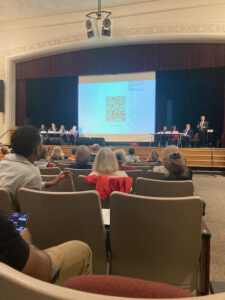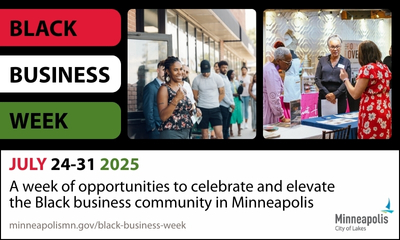BY KAY SCHROVEN
History
In the spring of 2023, the Minneapolis Department of Human Rights (MDHR) and the city of Minneapolis – including the Minneapolis Police Department (MPD) – entered into a court enforceable agreement to correct alleged violations of the MDHR Act, Minn.Stat.Ch.363A. The Agreement requires specific measures that must be taken and on-going evaluation of these measures. Minneapolis is the first city in the country to be under both State and Federal consent decrees regarding discriminatory policing practices, with over a decade of civil rights abuses. The decree addresses many issues including use of force, body cameras, marijuana policy, protocols in training, pretextual traffic stops, de-escalation, accountability and much more (for a more complete summary of the Agreement, see Southside Pride, May 2023.)
One of the requirements of the decree is independent, outside monitoring and evaluation. That is, a third-party organization of evaluators with appropriate, professional expertise to provide relevant data and counsel as well as evaluation of the progress. This includes “coaching” for the MPD, with a goal of achieving compliance. In addition to the local Community Commission on Police Oversight, (CCPO) an Independent Evaluator (I.E.) needed to be identified and hired.
There were 20 applications for this role; 3 finalists were invited to come to Minneapolis to present their organization and what they have to offer. The group selected is Effective Law Enforcement for All. ELEFA was founded in 2020 by David Douglass, Deputy Monitor for the City of New Orleans. ELEFA is a 501(c) (3) nonprofit “Dedicated to educating and empowering the public to engage with their law enforcement practices that are safe and effective for police and the communities they serve.” ELEFA has worked with New Orleans (under consent decree since 2013) as well as Montgomery County, MD., and have offices in Louisiana and Maryland. (Learn more at ele4a.org) The decision to hire ELEFA was made by MDHR, the city and approved by the court. This brought criticism from some community members who sought to have more direct input into the decision.
 The Minneapolis ELEFA team is co-led by Mr. Douglass and Michael S. Harrison, former Officer and Commissioner of the Baltimore Police Dept. (BPD) and former Superintendent of the New Orleans Police Dept. (NOPD.) Harrison is available to, and meets with, Minneapolis Chief Brian O’Hara on a regular basis. The rest of the professional team of nine assigned to Minneapolis have expertise in monitoring, independent evaluation, project management, accountability, policy, intervention systems, training (such as Use of Force) and mental health. They bring diverse backgrounds and a focus on community involvement and reforming policing. ELEFA is compensated at 1.5 million annually.
The Minneapolis ELEFA team is co-led by Mr. Douglass and Michael S. Harrison, former Officer and Commissioner of the Baltimore Police Dept. (BPD) and former Superintendent of the New Orleans Police Dept. (NOPD.) Harrison is available to, and meets with, Minneapolis Chief Brian O’Hara on a regular basis. The rest of the professional team of nine assigned to Minneapolis have expertise in monitoring, independent evaluation, project management, accountability, policy, intervention systems, training (such as Use of Force) and mental health. They bring diverse backgrounds and a focus on community involvement and reforming policing. ELEFA is compensated at 1.5 million annually.
In the Agreement (set forth in July 2023) there is an “Implementation Progress Evaluation Plan” which defines how the I.E. will evaluate the Parties progress toward compliance. Page 87 outlines the requirements as written in the Settlement Agreement. That is, actions the city and MPD must take, a schedule for accomplishing the actions and how compliance will be measured. In Sept. 2024 the I.E. published its plan. The format of the plan contains three parts: Requirement, Action and Evaluation. Because the I.E. was not appointed until March of 2024 (not July of 2023) there is a delay and request to the Court to change the effective date to March 2024. The request is pending before the Court.
Meeting with the Communities
On Nov. 13 and Nov. 14, the Minneapolis ELEFA team met with community members in both South and North Minneapolis for a presentation and opportunity for the community to give input, voice concerns, etc. The South Minneapolis event could have been better attended (I estimated 50 to 60 people), but those that were present were attentive, spirited and vocal. Mad Dads were there, as were Violence Interrupters, representatives of George Floyd Square, CCPO, several active neighborhood organizations as well as residents of South Minneapolis and other interested parties.
The panel was introduced, each giving a brief overview of their role and touching on key matters currently being addressed. There were overhead charts and graphs, a very long, detailed spreadsheet tracking various actions, dates, deadlines and handouts about ELEFA’s mission. It was a bit like corporate meetings I’ve attended – lots of data and documents, insider acronyms, key phrases (empowerment, engagement) and an upbeat vibe. Implementation goals were broken down into Year 1, 2, 3 and 4. We learned that there is a serious backlog of officer conduct complaints (about 300.) Why the back up? Answer – staffing issues (turnover), dated software, etc. The backup has slowed the process of officer discipline and feedback to those in the community who filed the complaints.
Eleven bullet points were listed with respect to Year 1 goals. The list started with cleaning up the backlog (of course.) It was followed by matters involving body worn cameras, increased ability to observe officer performance, equipment and facilities updates, launching of a MN website (elefamn.org), reports, meetings, data systems updates, policies, training plans, officer wellness, etc.; a lot to unpack.
We were also introduced to the measures that will determine compliance status. That is, the type of questions that must be answered such as “Has the MPD adopted approved policies that meet the requirements of the Agreement? Have they provided approved training? Do they have sufficient personnel? Adequate financial support? Proper Facilities and equipment (such as data systems)?” We heard that the data base regarding officer misconduct needs a complete revamp. What are the results of the required community evaluation surveys (you can take the survey on ELEFA’s website)? And so on. Regarding compliance there are 7 status options: Compliant, Partially Compliant, Partially Compliant Off-Track, At Risk, Non-compliant, Not Yet Measured and Not applicable.
The ELEFA team emphasized the importance of community input and detailed how and where to give input (website, public engagement sessions, and connection via community organizations.) They further shared that they are impressed with the active organizations in Minneapolis that have reached out to them since day one.
Questions from the community in attendance and the discussions that followed were lively. When asked point blank how things are going, we learned that “The MPD is not resistant to the Agreement and its requirements although there is a lack of trust that must be overcome. There is unlearning to do. We need to repair relationships.” We learned that the physical facilities for officers are terrible and there is a real need to improve them. And that the MPD is currently re-drafting their policies. ELEFA will review these policies before they will go up the food-chain for final approval. There is a great need for resources regarding health and wellness – especially for officers and the 911 Department. It was pointed out that fortunately mental health issues are more openly discussed and treated than in the past. A community member asked what is being done to reward officers who are cooperating with the changes. Not sure that we got a clear response. There was mention that a 600-page document is more than we can expect officers to read. Conciseness counts! There were questions about how cultural barriers are being addressed with respect to the community input processes (tech and language.) Kudos was given to the CCPO for their involvement and progress. Criticism from community members involved pointing out that the decree is short term (4 years) and that we have “Another outsider coming in who will be here a short while, is not invested in the long term and will leave and not much will change.” There were echoes of the Cedric Alexander experience; he was hired into a newly created position as the Commissioner of Public Safety, tasked with integrating 5 Minneapolis city departments, stayed a year and left (2022-23.) One outspoken community member bluntly stated, “It’s not working – and we are tired, we need visible change, boots on the ground, not more of the same.”
Culture Change
“Culture often trumps policy” said attorney Ben Crump as this consent decree was launched. And it seems this is at the crux of the matter. It is said that culture lives in the unconscious; changing it is not a fast or simple task. The ELEFA team acknowledged that the real task here is culture change and while they can help launch it, it is up to local powers-that-be and the community to sustain it. We know that the wheels of justice turn slowly – and culture change? Maybe even slower – like watching grass grow or paint dry.
Experts agree that – with respect to culture change – basic steps must be taken, such as creating a new and clear mission, developing practices in support of the mission, developing strong leaders and employees, and implementing a method for continuous improvement. ELEFA appears to be taking this approach with focus on policy development in year 1. This is to be the foundation upon which all else is constructed. It would be ideal if the ELEFA team was focused solely on Minneapolis, but this is not the case. On the plus side they bring experience that may benefit Minneapolis and the MPD, having worked with other cities and counties who surely have similar challenges.
In closing, the team stressed the need for community involvement, inviting those so inclined to connect with them. ELEFA is required to report updates every 4 months and produce 2 reports annually. Next community sessions will be in March 2025. Watch for dates (TBD) and details.






















